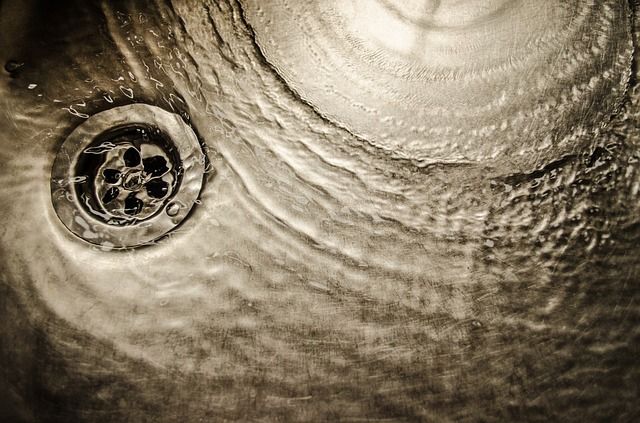Drain functionality is essential to the smooth operation of your home. Every time you turn on a faucet, run the washing machine, or flush the toilet, your drainage system should quickly remove waste water without a second thought from you. But like any area of your home—especially one that sees so much use—drains can fall into disrepair. How do you know whether your drains need cleaning? Read on! And don’t miss our tips on how to clean them effectively.
1. Slow Drainage
One of the most obvious signs your drains need cleaning is their failure to remove waste water. Have you noticed your sink or bathtub draining particularly slowly? Maybe it doesn’t empty at all. Does your washing machine or dishwasher remain full of water when the cycle has finished?
These issues are not just hugely inconvenient, but they are signs of an obstruction in your pipes.
2. Water Backing Up
If your drains need cleaning, you may notice water backing up in various parts of your home, like gurgling in the toilets when you flush them or standing water in sinks, bathtubs, or showers. If you see water backing up through a drain, it’s a sign the drain needs to be cleaned.

3. The Smell of Sewage
A particularly unpleasant but noticeable sign your drains might need cleaning is the smell of sewage. If your drains become clogged, all the waste you flush or pour down the sink will build up and fester in the lines. In warmer months in North Texas, this can become severe and noticeable rather quickly. If you ever smell sewage in your home, it’s important to act immediately.
4. Fruit and Drain Flies
The build-up of waste, garbage, or sewage in clogged pipes can quickly attract flies. Tiny fruit flies may seem like just an annoyance at first, but they can become a health risk when they discover your kitchen and food. If you notice fruit flies around your home, there is a good chance they have been attracted by the scent of a blocked drain.
Another animal your backed-up pipes may attract is the aptly named drain fly. Also known as sewer or filter flies, they commonly breed in drains, septic tanks, and sewers. A clogged drain is the perfect place for them to live. If they’ve taken root, you will start noticing them particularly in your bathroom.
5. Strange Sounds
Keep an ear on your drains. If you hear them emitting unusual noises, they probably need to be cleaned. When your drains are blocked, water may be forced through small spaces or to change course. Often, this is accompanied by gurgling or bubbling sounds.
How to Clean Your Drain
If you’ve noticed any of the above signs in any of your drains, it’s time to break out the cleaning materials or call a plumber for more serious and stubborn blockages. Here are some steps you’ll want to take to ensure your pipes are clog-free and draining well.
Use Your Plunger
It is possible to force out something blocking your sink or tub by using a plunger. Fill up the sink or tub a little bit with water to make sure there’s some water in the pipe as well. Place the plunger over the drain, and turn the faucet back on, making sure the base of the plunger is covered in water. Then start plunging away until the gunk comes up through the back of your drain or the clog breaks apart, and the water flows down the drain freely. Be careful not to put excessive force on the pipes if the clog does not break free.
Get Rid of Grease
Not every blocked drain is caused by hair, debris, or other pieces of solid matter. Grease is a common culprit, especially in kitchen sinks, which are often on the same drain lines as laundry rooms. Trying a homemade drain cleaner can work wonders.
Use a cup of baking soda, a cup of table salt, and a quarter cup of cream of tartar. Mix all of this into a jar, and put a little bit into the drain. Follow this by boiling water. This solution is also great for regular sink maintenance.
Bonus Tip! Using a microbial enzymatic drain aid on a regular basis will keep grease build-up at bay!
Use Non-Toxic Drain Cleaners
Non-toxic drain cleaners can be the perfect solution for many clogs. Try the baking soda, table salt, and cream of tartar recipe listed above. Other options include Alka-Seltzer®, baking soda with lemon juice, and salt mixed with borax and vinegar.
While fairly effective, chemical drain cleaners can damage your plumbing and cause risk to your health and the environment. As an alternative, consider enzymatic drain cleaners. Instead of chemicals, they use bacteria that eats hair, grease, and other organic materials. Not only will they usually remove clogs, they also move through your entire plumbing, cleaning the pipes.
To keep your drains and pipes in tip-top condition, perform regular maintenance. Sometimes a clog is hard to avoid. If you notice any of the above signs and the solutions we’ve provided aren’t working, contact us! We’re happy to provide assistance and advice, and answer any questions you have.

















